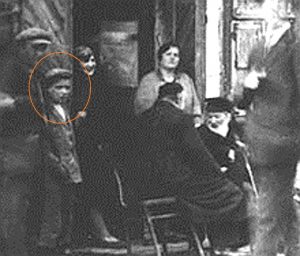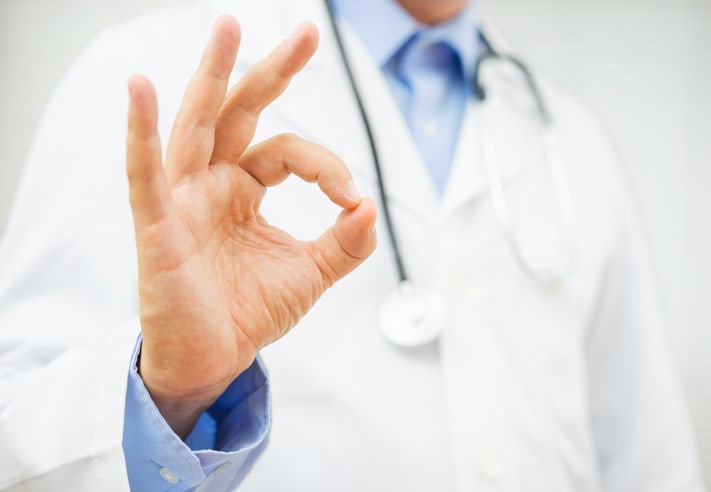Elazar vacillated between staring at me and awkwardly looking away. Something was up but I wasn’t in the right mindset to think too much about it. After all, I was still very much in shock.
After starting to tell me a few times and then stopping himself, Elazar finally said what was on his mind, “You know your shirt is torn Dr. Freedman?”
Of course that was it! But I was admittedly distracted and had forgotten that my shirt was conspicuously ripped right down the middle. Only an hour earlier as I checked my email on the morning commute had I seen the message that the Rav of my zaydie A”H—Reb Beryl Chafetz ZT”L—was niftar. And though I was sitting on the bus surrounded by a mix of neighbors and strangers, I did kriya and began to cry thinking about what a tremendous loss this was for my family and for the Jewish people.
When I was a kid, Reb Beryl was the literal embodiment of Yiddishkeit in my life. Following the passing of my uncle Baruch A”H, I remember Reb Beryl coming to the house, ensuring that there would be shiva minyanim, and learning mishnayot with my father and zaydie. Here was a rebbe! A real rebbe! Not just someone who had smicha but someone who lived Torah in just about as temima-dig a way as it could be done. It wasn’t easy for a kid to be in awe of a soft-spoken older man of small-stature, but I stood up for him before I even understood what a talmid chacham Reb Beryl was.
So of course my shirt was ripped! Reb Beryl was niftar!
“My zaydie‘s rebbe was niftar,” I told Elazar who nodded in acknowledgement.
“Baruch Dayan Emes,” he responded solemnly. “I’m sorry to hear that Dr. Freedman.”
We sat in a shared silence for a few moments. Elazar was a psychotherapy patient of mine who was basically regular guy in his forties. He learned daf yomi, worked in a local business, and had chronic shalom bayis problems that had improved significantly over the course of a therapy that was pretty much finished. I was somewhat surprised to see him in follow-up as I had thought we’d terminated treatment the month before given his improvement and stability. With this in mind, I began to ask him what had brought him back to my office.
But Elazar beat me to it in breaking the silence, “Tell me about him, Dr. Freedman. Who was he?”
And perhaps against my better judgement I began to speak, “Reb Beryl Chafetz was the prime example of hitnaari me’afar kumi. He lost most of his family in the war but survived the ashes of the Shoah. He came to Boston to face another set of tests but was successful in building a Torah family in spite of massive assimilationist pressures.”
“You said he was your zaydie‘s rebbe?”
“And my father’s bar mitzvah teacher and rebbe. And my rebbe. And my sons’ rebbe. Four generations of Freedmans! He taught four generations of Freedmans to say ‘Shma Yisrael.’ But you didn’t just say it with Reb Beryl. You felt it,” I said putting my hand on my heart and taking a deep breath. “You mamish felt it.”
I felt myself losing it and tried to stay composed as I was there for Elazar and not the other way around.
“Did he study at any of The Old Yeshivot? Volozhin? Mirer? Slobodka?”
“Even better, Reb Elazar. He studied by the Chofetz Chaim ZT”L.”
“In Radin?”
 “He’s the boy in the famous picture!” I said, wiping away my tears as I pulled up the famous picture of the Chofetz Chaim on my computer and turned the screen to show Elazar a picture of Reb Beryl as a young boy. There he was: standing less than a few yards away from Europe’s greatest rebbe.”
“He’s the boy in the famous picture!” I said, wiping away my tears as I pulled up the famous picture of the Chofetz Chaim on my computer and turned the screen to show Elazar a picture of Reb Beryl as a young boy. There he was: standing less than a few yards away from Europe’s greatest rebbe.”
Elazar was transfixed. “Where was he during the war?”
“He was with the Bielsky Brothers.”
“He was a partisan fighting against the Nazis yamak shemam?”
“He did his part, but the entire time he remained a ben Torah and did his best to keep learning in every free moment.”
“He sounds like an amazing person.”
“He was,” I said, tears streaming down my face.
“Have a tissue Dr. Freedman,” offered Elazar.
“Thanks, Reb Elazar.”
The two of us sat in silence again for a few moments.
“You OK, Dr. Freedman?”
“I’m great. Baruch HaShem, I’m great,” I replied. “It’s the rest of world I’m worried about. We can’t afford to lose tzaddikim like Reb Beryl.”
“I hear,” Elazar replied.
“How about you, Reb Elazar? You OK?”
“I’ve been better but it’s not worth being upset about. I mean, the kind of stuff I came into here to whine about is trivial. That I only got a 2% annual raise last month and am thinking about quitting? That my wife yelled at me to take out the trash when I’d already done it an hour before and I’m angry? That someone was sitting in my spot at shul last Shabbos? Come on that stuff isn’t worth complaining about.”
“But it was a few minutes ago,” I commented.
“But it isn’t now. I mean your zaydie‘s rebbe lost countless friends, family, and fellow talmidim in the Shoah. People starved to death and I’m complaining about the size of a raise? People lost their wives and I’m upset about taking out the trash? Entire communities were burned alive in their shuls and I’m frustrated that someone took my shtender?”
I found a smile in between the pain and told him, “You’re cured, Elazar.”
“For today at least,” Elazar said pulling out his checkbook.
“I can’t take payment for today, Elazar.”
“I’m cured though. Seriously.”
“Emes?”
“Emes, Dr. Freedman. I have zero excuses to go out there with a frown on my face right now. This might have been our best session to date. Let me pay you, OK?”
I thought for a moment. “Give it in the merit of Reb Dov Ber Ben Yeshayahu.”
“Give it where?”
“To a yeshiva, of course. Reb Beryl loved teaching kids whether they were zaydies or great-grandchildren.”
“Absolutely, Dr. Freedman. The neshama should have an aliyah and the memory should be for a bracha.”
“Amen,” I said shaking Reb Elazar’s hand and wishing him a good day.
I sat down in my chair and said a few prakim of Tehillim in the memory of Reb Beryl. In my mind I could still see him standing next to my zaydie A”H, helping him to say kaddish after uncle Baruch A”H was niftar. I pictured Reb Beryl as chazzan at my sheva brachos and at the bris of my first son. I remembered him teaching my boys kriyat Shema and giving them the same bracha he always gave us all, “you should grow in Torah and yiras Shemayim in the zechut of the Chofetz Chaim.”
“Amen,” I said to myself softly.
Jacob L. Freedman, MD, is a former student of Yeshiva Aish HaTorah and a psychiatrist in Boston, Massachusetts, and Jerusalem, Israel. Dr. Freedman is also a health care and a risk-management consultant as well as a suburban mountain biking enthusiast. For more information regarding Dr. Freedman, please visit his website at drjacoblfreedman.com.
The words of this author reflect his/her own opinions and do not necessarily represent the official position of the Orthodox Union.
